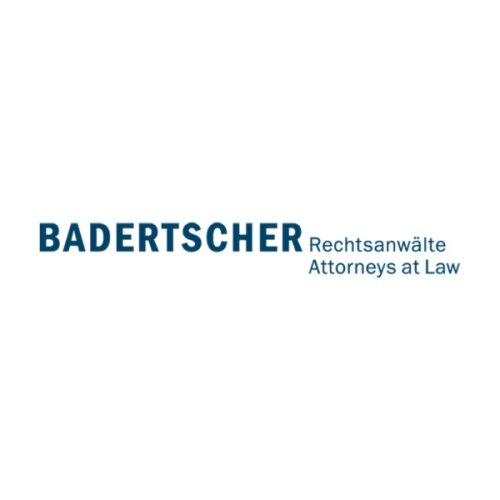Best Employer Lawyers in Zug
Share your needs with us, get contacted by law firms.
Free. Takes 2 min.
List of the best lawyers in Zug, Switzerland
About Employer Law in Zug, Switzerland
Employer law in Zug, Switzerland governs the relationship between employers and employees. It includes regulations related to employment contracts, working conditions, minimum wage, social security, termination of employment, and more. Understanding employer law is crucial for both employers and employees to ensure compliance and to protect their rights and interests.
Why You May Need a Lawyer
There are various situations where you may require legal assistance in employer law:
- Disputes: If you are involved in a legal dispute with your employer or employee, a lawyer can help represent your interests and negotiate a resolution.
- Contractual Issues: When drafting or reviewing employment contracts, it is important to seek legal advice to ensure the terms are fair, comply with the law, and protect your rights.
- Discrimination or Harassment Claims: If you believe you have been a victim of discrimination or harassment in the workplace, a lawyer can guide you through the legal process and help you seek justice.
- Workplace Injuries: In case of work-related injuries, a lawyer can assist you in navigating the workers' compensation system and obtaining the appropriate compensation.
- Termination of Employment: If you are facing unfair dismissal or if you need to terminate an employee's contract and want to ensure a legal process, a lawyer can provide valuable advice and representation.
Local Laws Overview
In Zug, Switzerland, several key aspects of employer law are particularly relevant:
- Employment Contracts: Employment contracts in Zug must adhere to the Swiss Code of Obligations and should specify the terms and conditions of employment, including working hours, holidays, wages, and notice periods.
- Working Hours: The standard working week in Zug is 42 hours, and employees are entitled to a minimum of four weeks of paid vacation per year.
- Health and Safety: Employers have a duty to provide a safe and healthy working environment. They must comply with relevant health and safety regulations and take appropriate measures to prevent accidents and occupational illnesses.
- Termination of Employment: Termination of employment is subject to specific rules, including notice periods based on the length of employment and protection against unfair dismissal.
- Non-Discrimination: Employers must not discriminate against employees based on factors such as gender, nationality, religion, disability, or sexual orientation. Equal treatment and opportunities should be provided to all employees.
Frequently Asked Questions
1. Can an employer terminate an employment contract without giving a reason?
No, in Zug, Switzerland, employment contracts can generally only be terminated for just cause or upon agreement between both parties. However, certain exceptions may apply depending on the nature of employment and the duration of service.
2. How long is the notice period for terminating an employment contract?
The notice period depends on the length of employment: - Up to 10 years: 1 month - 10 to 20 years: 2 months - 20 years or more: 3 months The notice period can be extended by mutual agreement or reduced in exceptional circumstances.
3. Are there any limitations on working hours in Zug?
Yes, the standard working week in Zug is 42 hours. There are also restrictions on night work and overtime, which should be compensated according to the applicable laws and collective bargaining agreements.
4. What should I do if I believe I have been discriminated against at work?
If you believe you have been a victim of discrimination, it is advisable to first document any incidents or evidence. Then, consult with a lawyer who specializes in employment law to discuss your situation, rights, and potential legal actions.
5. Is there a minimum wage in Zug, Switzerland?
No, Switzerland does not have a legally mandated minimum wage. However, certain industries and occupations may have minimum wage agreements negotiated between employers and employee associations.
Additional Resources
For further legal advice and information on employer law in Zug, Switzerland, consider these resources:
- Zug Chamber of Commerce: Provides guidance and resources on local employment regulations.
- Swiss Federal Act on Employment Contracts and Collective Bargaining: The official legislation outlining employment laws in Switzerland.
- Swiss Federal Department of Economic Affairs, Education, and Research: Offers information on labor law, employment conditions, and legal obligations for employers.
- Swiss Labor Law Association: An organization dedicated to promoting the understanding and development of labor law in Switzerland.
Next Steps
If you require legal assistance in employer law matters in Zug, Switzerland, it is recommended to:
- Research and gather relevant documents and evidence pertaining to your case.
- Consider consulting with a specialized employment lawyer who can provide personalized advice.
- Prepare a list of questions or concerns to discuss during the initial consultation.
- Evaluate the lawyer's expertise, experience, and fees to ensure they align with your needs and budget.
- Once you have chosen a lawyer, schedule an appointment to discuss your case in detail and determine the best course of action.
Lawzana helps you find the best lawyers and law firms in Zug through a curated and pre-screened list of qualified legal professionals. Our platform offers rankings and detailed profiles of attorneys and law firms, allowing you to compare based on practice areas, including Employer, experience, and client feedback.
Each profile includes a description of the firm's areas of practice, client reviews, team members and partners, year of establishment, spoken languages, office locations, contact information, social media presence, and any published articles or resources. Most firms on our platform speak English and are experienced in both local and international legal matters.
Get a quote from top-rated law firms in Zug, Switzerland — quickly, securely, and without unnecessary hassle.
Disclaimer:
The information provided on this page is for general informational purposes only and does not constitute legal advice. While we strive to ensure the accuracy and relevance of the content, legal information may change over time, and interpretations of the law can vary. You should always consult with a qualified legal professional for advice specific to your situation.
We disclaim all liability for actions taken or not taken based on the content of this page. If you believe any information is incorrect or outdated, please contact us, and we will review and update it where appropriate.










